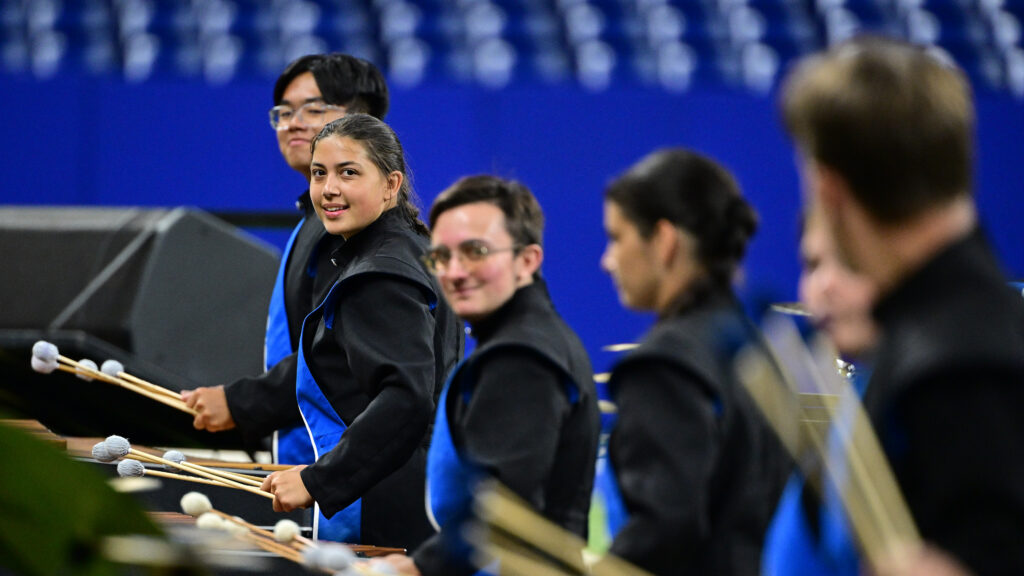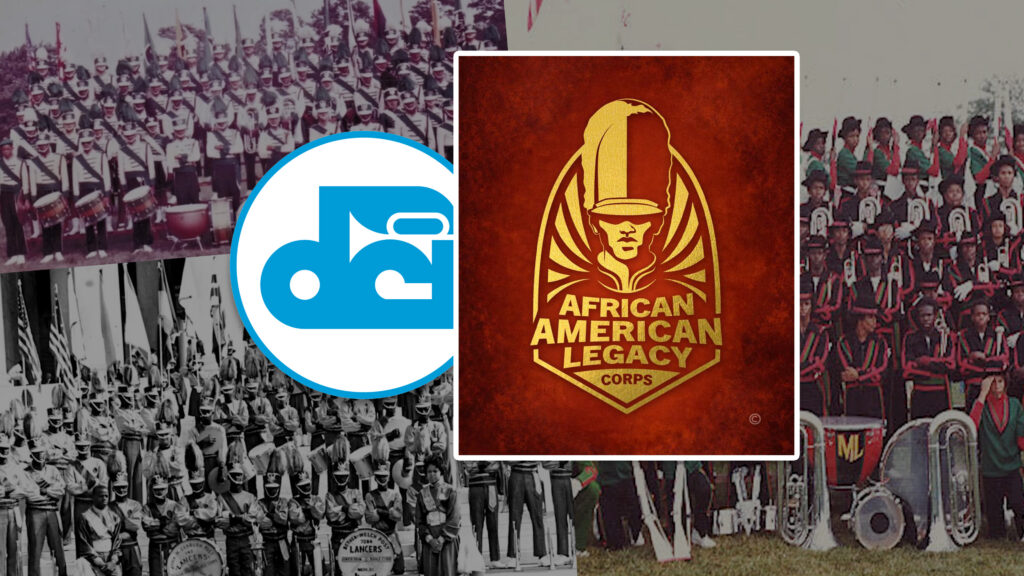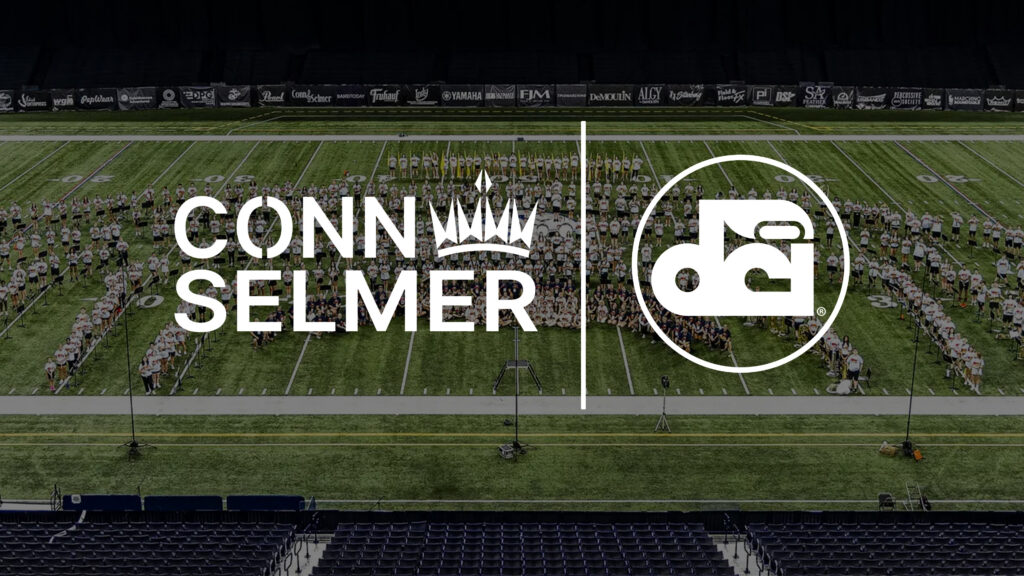
When the 2006 DCI World Championships went to Camp Randall Stadium in Madison for the seventh time, the venue had recently been substantially modernized and enlarged. Prior to the final week of the summer season, all Division I corps stopped at the first-ever DCI Southeastern Championship in Atlanta, and numerous groups were forced to curtail many days of outside rehearsals when a record-setting mid-July heat wave turned most of the nation into a 100-degree sweltering oven. For the second year in a row, Colts were the corps on the wrong side of the “bubble,” one corps away from performing on the last night of the season. Returning to Division I competition after more than two decades in Division II & III, Blue Stars surged into 14th place. The pack was so close in that range of corps that both Crossmen and Capital Regiment were within .65 of a point from the Blue Stars. Mandarins held on to a Semifinals spot, knocking Southwind out of the picture. Capital Regiment’s 16th place show, “Life Rhythms: Work, Rest and Play,” explored how our lives are guided and controlled by elements we don’t necessarily see, but definitely feel. Each musical selection depicted an aspect of daily life. Prior to the beginning of the “Work” segment, the corps’ drum major read the daily paper and glanced at his watch to see if it was time to start the day and earn his living. The opener, Eric Whitacre’s rhythmically dense concert band work “Equus,” is described by the composer as “dynamic minimalism” and “a piece that starts running and never stops.”
Conveying the story of a workday, it began with a hectic commute to the repetitive pulse, sounding akin to the movement of engine cylinders on a vehicle transporting somebody to work. To convey the sense of the morning commute, one color guard member moved across the field with a briefcase in tow, heading toward the energetic tension of the office—the rhythms of work. One of the most unusual percussion effects ever placed on the field was the amplification of typing on a traditional old-fashioned manual typewriter. The typist even looked to the side and stifled a yawn, as if being bored with her labor. (This was totally independent of Cavaliers also utilizing a typewriter at the beginning of their closer for their “Machine” show the same year.)


Michael Boo was a member of the Cavaliers from 1975-1977. He has written about the drum corps activity for more than a quarter century and serves as a staff writer for various Drum Corps International projects. Boo has written for numerous other publications and has published an honors-winning book on the history of figure skating. As an accomplished composer, Boo holds a bachelor's degree in music education and a master's degree in music theory and composition. He resides in Chesterton, Ind.





